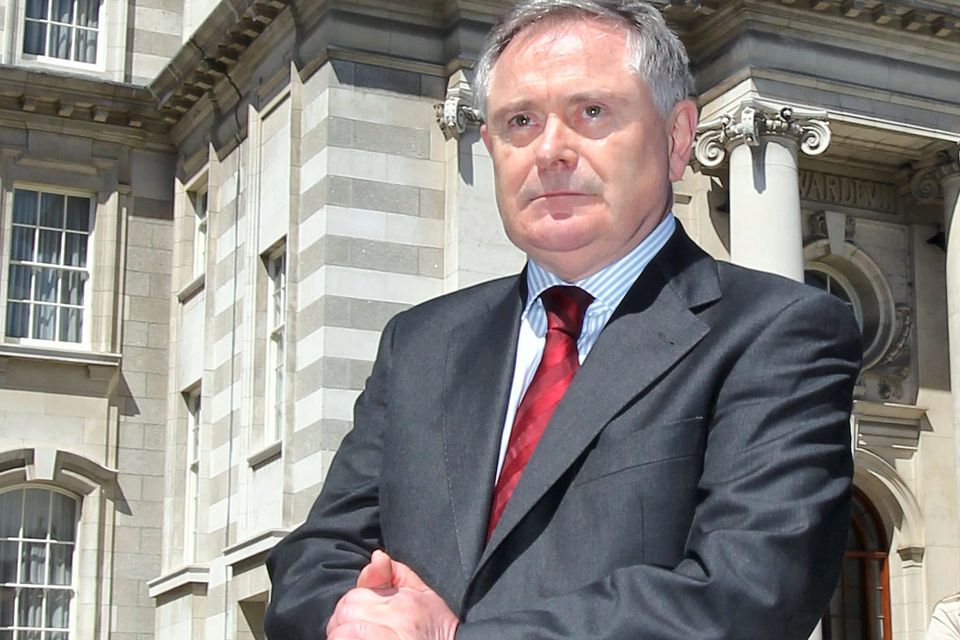Public sector staff in line for reversal of pay and pension cuts
Brendan Howlin has suggested that public sector staff might have their pay cuts reversed
The reversal of public sector pay and pension cuts, made during the economic crisis, is up for discussion as the Coalition prepares for the end of the “financial emergency”.
The negotiations between the Government and public sector unions will centre on changes made to pay packets and pensions and the introduction of a pension levy at the height of the economic crisis.
Public Expenditure Minister Brendan Howlin told the Irish Independent talks will begin next year.
The most contentious moves were the imposition of a pension levy of an average of 7.5pc and a pay cut of an average of 6.5pc to each public sector worker.
The cuts to nearly 300,000 public sector workers were made under emergency legislation, prompted by the economic collapse – the Financial Emergency Measures in the Public Interest Acts 2009-2013, known as FEMPI.
Mr Howlin said: “A day will arrive when the emergency no longer exists.”
The minister said the cuts will not be reversed as a “big bang” as that would undo the efforts to reduce the budget deficit over the past three years.
“There has to be an orderly wind-down, as opposed to a sudden ending,” he said. Over the course of the downturn, the number of public servants reduced from a peak of 320,400 in late 2008 to 288,200 by the end of last year.
The minister is not committing to rowing back on all the public sector pay cuts implemented from 2009 to 2013.
He said the talks will focus on which measures will continue indefinitely and which will be reversed. The deal will run parallel to the temporary pay cuts under the Haddington Road Agreement.
"That will have to be part of the negotiation, what will be permanent features, what will be unwound. I mean, Haddington Road itself has a process over time for the restoration of pay cuts, because obviously there will be pressure for pay rises and they have to be met in a way of restoration. Some unions are talking about dealing with it in different ways, so I will open discussions on that next year," he told this newspaper.
The financial emergency measures were used by both the previous and current Government to reduce the public sector pay and pensions bill, including:
* 2009 No 1 was a pension levy imposed on public sector workers, worth an average of 7.5pc;
* 2009 No 2 was a pay cut on a sliding scale, dependent on salary size, but worth an average of 6.5pc;
* In 2010 the pensions of retired public sector workers and the pay of ministers were cut;
* In 2011 the pay and pensions of judges were cut;
* 2013 saw another pay cut for higher-paid public servants earning more than €65,000, pensioners on more than €32,500 and the suspension of increments.
Mr Howlin said the Government wants to see the "unravelling" of the measures introduced under FEMPI. He said the talks will not result in more cuts and pensioners will be included in the negotiations as they made a contribution.
"As far as I am concerned, we have struck a deal (Haddington Road) with the public sector unions and that deal runs until the end of 2016.
"Of course, there are pressures on it. As far as I am concerned, the big issue for this department as we move out of recession will be a structured way of unravelling FEMPI," he said.
Mr Howlin said the emergency measures legislation was "a significant part of the process" that brought the country through the crisis and he had to tell the Dail every June that the financial emergency continues to exist.
Catastrophic
"Otherwise that law falls. And it can't simply fall in one fell swoop as it would be catastrophic for the finances of the State," he added.
"So next year, we certainly will have to engage with the unions on the orderly winding down of FEMPI and who should benefit first and how that should be done over time," he said.
The minister said he could not specify when the pay and pension cuts will be reversed.
That has yet to be determined and it has to be done in an orderly way.
"But we have to plan for that day and we have to have agreement with the public sector unions that it is not going to be a big bang, because that would undo all the good work we have done over three years. There has to be an orderly wind-down, as opposed to a sudden ending," he said.
Officials in his department are already working on figures around the pay reversals.
Join the Irish Independent WhatsApp channel
Stay up to date with all the latest news















